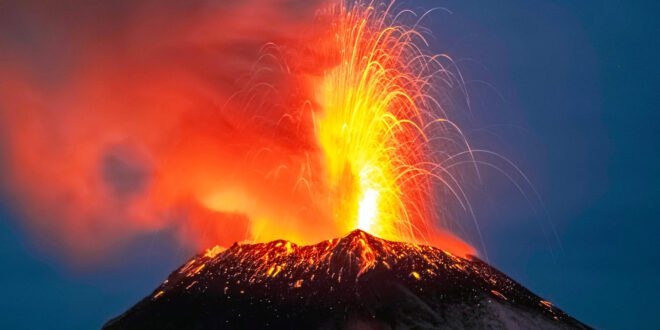Popocatépetl Volcano Affects Air Travel in Mexico City
The Popocatépetl Volcano in Mexico caused flight cancellations and delays over the weekend, and continued to impact air travel on Monday. AeroMexico reported more than 100 flights affected by the volcano’s eruptions. Sergio Salomón, governor of the Mexican state of Puebla, held a meeting with his advisors to plan a response to the eruptions if they continue.
NASA Detects Activity at Popocatépetl
Activity at the Popocatépetl Volcano was noted by NASA scientists on April 14. NASA and the U.S. Geological Survey captured images of some of the volcano’s spring outbursts, and Mexican scientists have detected water vapor, volcanic gases, and ash coming from the volcano. Plumes as high as 4.5 miles have been measured, according to NASA. On Monday, the USGS released a forecast that projected 10 to 32mm of ash fall in the area south of Mexico City by the end of the day.
Ash From Popocatépetl Suspends Flights
Ash from the Popocatépetl Volcano prompted the suspension of flights for five hours at both of Mexico City’s main airports on Saturday. Ash can block pilots’ views, hinder radio communication, and affect jet engines. The Smithsonian Institution reports that humans have noted the volcano’s activity since the 14th century. Its latest string of eruptions dates back to 2005, according to NASA.
Conclusion
The Popocatépetl Volcano’s eruptions continue to affect air travel in Mexico City. NASA has detected activity and the USGS has released ash fall forecasts. As one of Mexico’s most active volcanoes, Popocatépetl’s eruptions are a reminder of the power of nature and the impact it can have on travel and daily life.
 Mind Uncharted Explore. Discover. Learn.
Mind Uncharted Explore. Discover. Learn.


